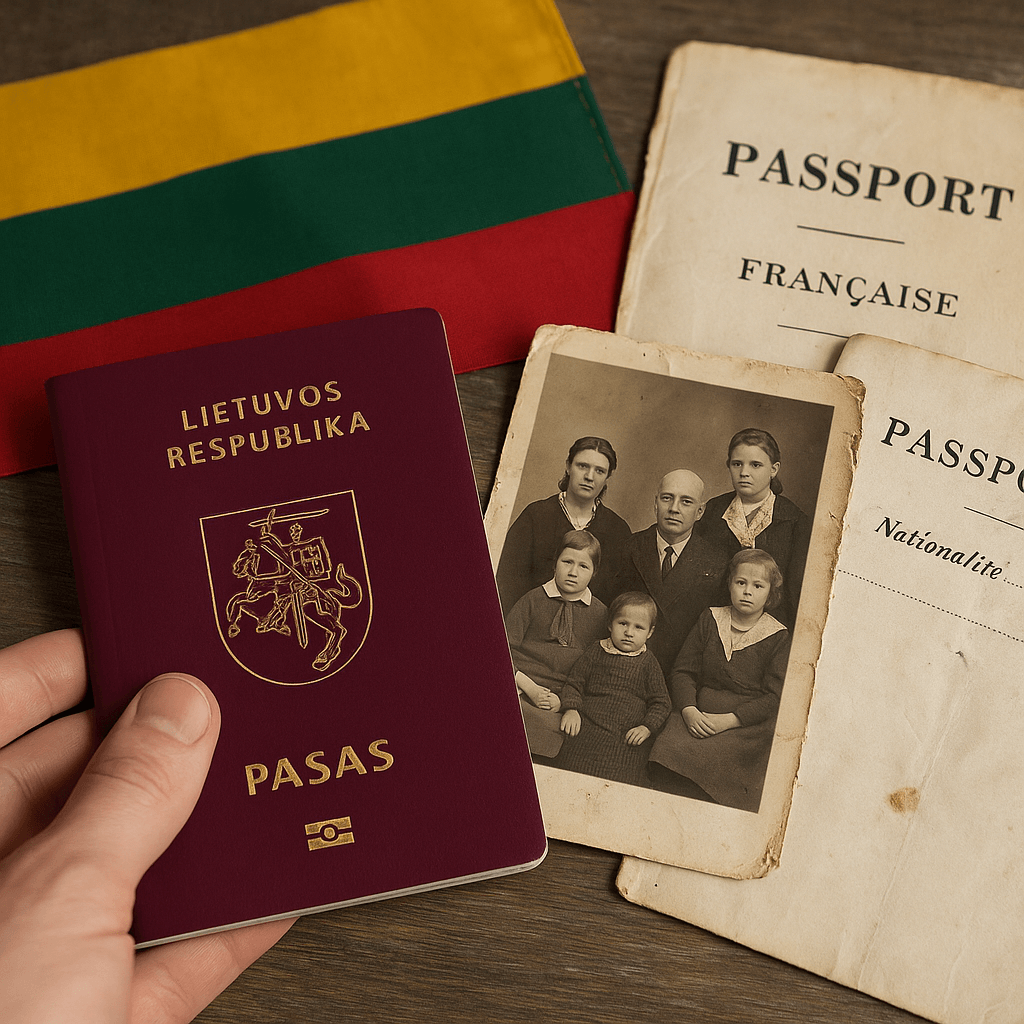
Many descendants of Lithuanian emigrants feel discouraged from applying for citizenship by descent because of one key concern:
“My ancestor left Lithuania without a passport — does that disqualify me?”
The answer is reassuring: No, it does not automatically disqualify you.
If your family left Lithuania without formal documents, especially before or during the Soviet occupation, you may still qualify for Lithuanian citizenship restoration. The process might require more investigative work, but with the right legal approach, it’s absolutely possible — and thousands of families have done it.
![]()
Why So Many Lithuanians Left Without a Passport
During the early 20th century, especially in the 1920s and 1930s, thousands of Lithuanians emigrated to countries like Brazil, Argentina, the United States, Canada, and South Africa. Some had proper travel documents. But many did not.
Here’s why:
- Some fled quickly due to political instability or persecution, especially during the Soviet and Nazi occupations
- Others left with foreign travel documents (like Polish or Russian-issued papers), even though they were ethnically Lithuanian
- Many emigrants were stateless, especially Jewish families
- Paper records were often lost, destroyed, or never created
This is not unusual. And it’s not a deal-breaker.
 What Lithuanian Law Actually Requires
What Lithuanian Law Actually Requires
To be eligible for citizenship restoration, you must prove two main things:
- That your ancestor was a Lithuanian citizen before June 15, 1940
- That you are a direct descendant of that person (child, grandchild, or great-grandchild)
Nowhere does the law say you must provide a Lithuanian passport. It’s helpful if available — but not required.
Other types of acceptable proof include:
- Internal Lithuanian residency records
- Birth or marriage certificates showing Lithuanian nationality
- Military service documents
- Lithuanian school or employment records
- Archived immigration documents from the receiving country (Brazil, Argentina, etc.)
- Church records or census documents from pre-1940 Lithuania
What to Do If You Don’t Have Any of These Documents
If your family doesn’t have original records, don’t give up. This is where legal professionals can help.
At IN JURE Law Firm, we specialize in “difficult” cases — including applicants whose ancestors left without travel documents. We have access to Lithuanian national and regional archives, and we know how to search for evidence others might miss.
We’ve successfully represented:
- Descendants of Holocaust survivors whose documents were destroyed
- Families who left Lithuania under Soviet rule using non-Lithuanian IDs
- Individuals with only verbal family history or fragmented stories
We start with a free eligibility assessment. If there’s even a chance your family qualifies, we’ll let you know — with no pressure to commit.
You Don’t Need a Perfect Past to Claim What’s Yours
The absence of a Lithuanian passport isn’t the end of the road — it’s just the start of a deeper discovery process.
If you believe your ancestor was Lithuanian and left the country before the Soviet occupation, you might still be eligible to reclaim your citizenship — and with it, EU rights for you and your family.
→ Ready to explore your eligibility? IN JURE Law Firm offers free case reviews and success-based pricing.
Let’s find out what your family left behind — and how we can help you get it back.
Leave a Reply